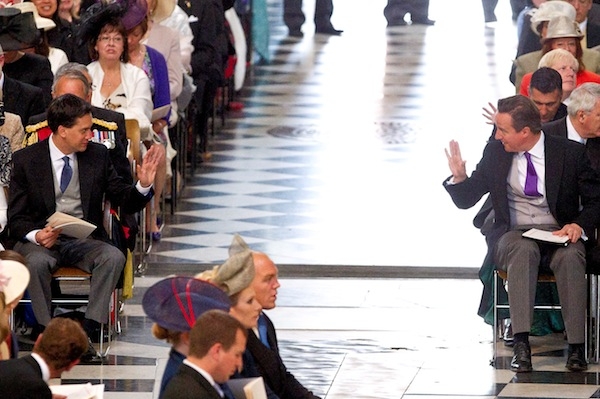Stephan Shakespeare has a fascinating article on Con Home today, comparing which words voters associate with the terms ‘right-wing’ or ‘left-wing’. The results aren’t too surprising: the language of the left is, generally, softer than the language of the right. Shakespeare’s article is entitled ‘Fairness versus selfish’, which gives you an idea of how voters perceive the dichotomy.
The upshot is that many voters still believe that the right is intrinsically ‘nasty’; ergo, the modernisation project has not gone far enough. This research, and the conclusions drawn from it, reminds me of Jonathan Haidt’s book The Righteous Mind (indeed, Shakespeare references an article by Haidt). The Spectator interviewed Haidt two months ago; he argued that the left’s foundations are narrow but appealing, while the right offers a broader spectrum of moral beliefs but many people struggle to empathise with its terminology.
Defining your terms is, of course, vital to control debate. The Tories might have been more rigorous about this in government (and indeed when they were ‘cross-dressing’ in opposition during 2008-09). In a robust CPS paper published last week, Tim Morgan lamented that ‘coalition policies are sold in Labour language and tested against Labour benchmarks’. The battle over ‘fairness’ is a case in point. It is impossible not to talk about ‘fairness’ (the word underpins so much moral thinking), but its definition and application are not settled. For example, is it fair to tax low paid people (especially the asset poor young) to pay a winter fuel allowance to comfortably-off pensioners in order to maintain the notion of universal welfare? The government is only just beginning to frame that simple question in terms which make the pro-welfarist left look intrinsically nasty for a change.
David Blackburn
The language of left and right






Comments